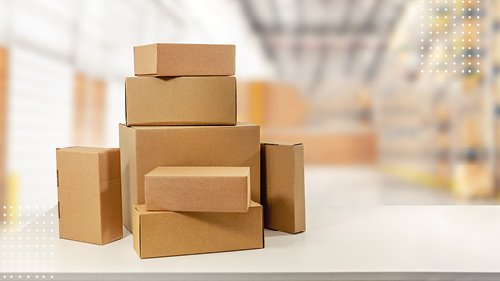Cargo Insurance: Your Complete Guide
06/30/2022

Cargo insurance is one of the most proactive steps companies can take to protect their supply chain. Insurance safeguards shippers’ financial investments during domestic and international transit. While in transit, cargo is susceptible to natural disasters, severe weather, theft, pilferage, damage, fire and other challenges.
In addition to base cargo insurance, additional insurance coverage is encouraged for High-Value, High-Risk or Used Equipment or Machinery. What characteristics cause cargo to fall under these three categories?
High-Value Cargo
High-value cargo is any shipment valued at more than $100,000 (Truckload) or more than $25 per pound per package (LTL) for domestic freight.
International freight is slightly different as the High-Value designation occurs if the shipment value is higher than the terms and conditions noted on the back of the carrier’s (Steamship Line) ocean bill of lading.
High-Risk Cargo
High-risk cargo includes commonly stolen items such as electronics, precious metals, pharmaceuticals, liquor, apparel, cosmetics or appliances. This category also includes temperature-sensitive or fragile products such as chocolate, soft fruit, glass panes and eggs, which have a higher risk of damage if not correctly transported. Additional high-risk cargo can be identified due to:
- – The specific route
- – The time-frame for shipping
- – The destination, transship or origin country
Used Equipment or Machinery
Used equipment or machinery is any cargo that is a piece of equipment or machinery that is no longer new, has been reconditioned, refurbished or rebuilt.
It’s important to note that for domestic over-the-road cargo, truckload shipments differ from less-than-truckload when exploring the need for additional insurance.
Truckload Cargo Insurance
If a truckload shipment exceeds $100,000 in value, the carrier and the third-party logistics provider (3PL) need to be notified in advance as carriers will only be liable for up to $100,000 of cargo value. If a shipment will surpass this threshold, it is crucial to proactively work with your 3PL to obtain supplemental cargo insurance to cover the remaining value beyond $100,000.
Less-Than-Truckload Cargo Insurance
When considering additional insurance for Less-than-Truckload freight, knowing the NMFC (National Motor Freight Classification) class is extremely important. The NMFC typically dictates the amount of payback from the carrier to the shipper in the event of damage or loss.
Carriers publish governing rules tariffs which state recovery rates for particular classes. Therefore, when considering additional cargo insurance, shippers must identify the threshold of carrier liability based upon the freight class.
For example, under general rules tariffs, a class 300 product has varying payback rates dependent on the carrier chosen. The carrier could be liable for $5.00 – $25.00 per pound. If the cost to produce the product is greater than the carrier’s coverage rate, then damage or complete loss of the product would be detrimental to the shipper.
In regards to liability, Ascent clients with pricing based on Ascent tariffs (between Ascent and the carrier) benefit from our expert carrier negotiation. Our team has negotiated higher liability standards, which are not based upon the classification. Of our preferred carriers, 98 percent are under contract for Liability Coverage of $25.00 per pound per package, up to $100,000 per shipment (regardless of class). The sole exception to our negotiated Liability Coverage is Used Equipment/Machinery.
Ascent clients with pricing that was negotiated by Ascent, but resides between the customer and the carrier, will carry the liability in the carrier’s rules tariffs, based upon whichever is the lowest:
- – Actual class
- – Freight of All Kinds (FAK) class
- – The amount listed for released or limited liability items
Many LTL carriers will not offer or extend additional cargo insurance on Used Equipment/Machinery. Typical liability for Used Equipment/Machinery will range between $0.10 and $1.00 per pound. A shipper with Used Equipment/Machinery cargo should contact an Ascent team member to explore transactional insurance options.
International Cargo Insurance
Similar to domestic cargo insurance, additional coverage is available for international cargo. For international cargo, it is crucial to work with your freight forwarder well in advance of the shipment’s departure.
Typically, an insurance underwriter will require a questionnaire to be completed by the exporter before extending additional coverage. These questionnaires cover items such as:
- – What the product is
- – Why the cargo needs additional insurance
- – The shipper’s claims history
- – Annual shipment volumes
- – Where the cargo is being shipped to
- – The ocean carrier
- – Other shipment details
When shipping High-Value cargo overseas, it is a best practice to send shipments on multiple different sailings to lower the overall risk.
Additionally, international shippers should be well aware of the insurance responsibilities outlined in the Incoterms and terms of sale. Another key reason shippers should insure their ocean freight shipments is the law of General Average.
How to Manage Cargo Insurance for All Modes of Transportation
Regardless of the mode, route or product, it is vital to work with the carrier, 3PL and insurance underwriter to guarantee you are covered in the case of damage or complete loss.
Ascent Global Logistics can help manage your insurance needs with efficiency and experience. Contact us to learn more about our comprehensive cargo insurance offerings.
June 30, 2025
Thank you for contacting Ascent!
A member of our team will be in contact within a few business hours.
Okay